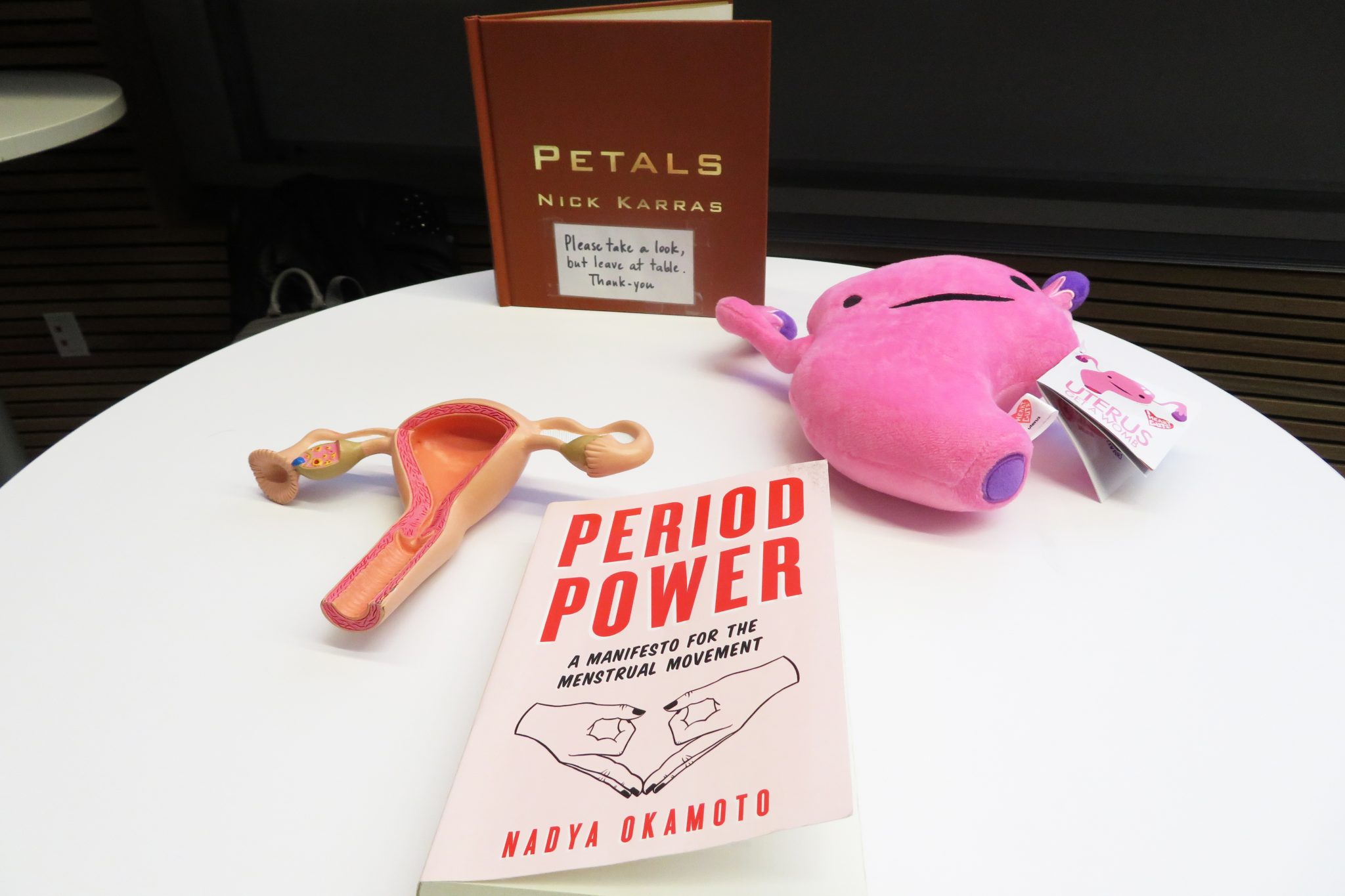Sustainable menstruation event educates students about eco-friendly period products


On Mar. 21, the Centre for Student Equity, Diversity and Inclusion and LSPIRG hosted “Bleed Red, Go Green: Exploring Sustainable Menstruation.”
This workshop, which was open to all menstruating people regardless of gender, allowed student attendees to learn about menstruation and its relationship to the environment.
The event featured presentations from DivaCup, SHORE Centre in Kitchener-Waterloo and LSPIRG.
The goal wasto provide knowledge and information for those in attendance about the sustainable, accessible and environmental implications regarding menstrual products.
Brooke Dietrich, a diversity and equity advisor at Wilfrid Laurier University, planned the event with funding from the Sustainable Hawk Fund, which allows students to implement sustainability projects at Laurier.
“Menstruation is not really something that’s talked about in society, but menstrual equality is incredibly important,” Dietrich said.
The event was created with the intention of encouraging students to start menstruating sustainably.
The first presentation, held by a DivaCup representative, gave insight on how their product works.
These small, reusable, silicone cups can be inserted like a tampon. When inserted, it creates a seal that collects the flow of menses.
The DivaCup’s reusable quality is also much more sustainable than disposable products, which produce a lot of plastic and water waste yearly. While DivaCups may seem like a hefty investment, it’s worth noting that each menstrual cup can be used for upwards of a year before replacing it is recommended.
On average, a menstruating person may use around 240 disposable period products in a year, compared to the DivaCup, which is a one-time purchase.
The following presentation was by Kitchener-Waterloo’s sexual health centre, SHORE Centre.
Everyone in attendance was encouraged to think of how period products become accessible or inaccessible, based on the privileges that are either afforded or refused to some people.
For example, the idea of gender equity in relation to period products was discussed. Because of the misconception that only women can get their periods, not every bathroom provides period products, leaving many people without access.The concept of period poverty where not everyone is able to afford period products was explored as well.
While perceptions around menstruation have changed, there is still more that needs to be done. Many harmful misconceptions still exist, and periods are often considered inappropriate or taboo.
“This event is also really important because it’s providing undergraduate students with an opportunity to select their style of alternative menstrual product, and give it a go without having to [make] the investment,” Dietrich said.
At the end of the event, everyone in attendance was able to pick up their sustainable period product that they chose with their ticket purchase.
“All of the products that were given out, except for the reusable pad, is upwards of 45 to 50 dollars for one product, and that’s unfortunately not an option that a lot of students have,” Dietrich said.
The event enabled all in attendance to try their hand at sustainable menstruation without having to pay out of pocket.
Oftentimes, menstruation is considered a taboo topic — but the goal of the event was to remove the stigma and shame surrounding periods.
“As people who menstruate, we are taught to keep it “hush-hush” and that it’s not something that you should talk about in polite society,” Dietrich said.
The discourse around menstruation often paints it as inherently negative. While you don’t have to love your period — some people experience extreme pain or discomfort — the way periods are talked about sets people up to hate them before determining their own feelings towards their periods.
The closing presentation was created by LSPIRG, Laurier Student’s Public Interest Research Group.
The idea of “zero waste” was discussed, wherein people aim to live sustainably, with as little impact on the environment as possible.
With period products comes a lot of wasted plastic. For example, the external packaging of period products is often made with plastic, as well as tampon applicators, and even the period product itself, which is often made with cotton.
While cotton is natural, it uses a lot of water resources during its production.
Some “zero waste” alternatives for period products include reusable pads, THINX period underwear, and of course, the DivaCup.
While perceptions around menstruation have changed, there is still more that needs to be done. Many harmful misconceptions still exist, and periods are often considered inappropriate or taboo.
With events like this one, the hope is that the dialogue surrounding menstruation will become more mainstream.
After all, talking about periods should be as normal as having them.


